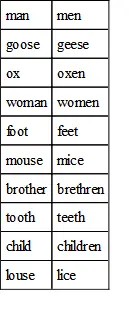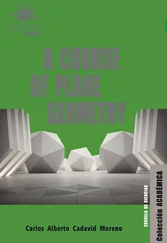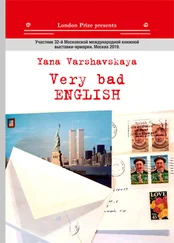Marian Wharton - Plain English
Здесь есть возможность читать онлайн «Marian Wharton - Plain English» — ознакомительный отрывок электронной книги совершенно бесплатно, а после прочтения отрывка купить полную версию. В некоторых случаях можно слушать аудио, скачать через торрент в формате fb2 и присутствует краткое содержание. Жанр: foreign_edu, foreign_language, на английском языке. Описание произведения, (предисловие) а так же отзывы посетителей доступны на портале библиотеки ЛибКат.
- Название:Plain English
- Автор:
- Жанр:
- Год:неизвестен
- ISBN:нет данных
- Рейтинг книги:5 / 5. Голосов: 1
-
Избранное:Добавить в избранное
- Отзывы:
-
Ваша оценка:
- 100
- 1
- 2
- 3
- 4
- 5
Plain English: краткое содержание, описание и аннотация
Предлагаем к чтению аннотацию, описание, краткое содержание или предисловие (зависит от того, что написал сам автор книги «Plain English»). Если вы не нашли необходимую информацию о книге — напишите в комментариях, мы постараемся отыскать её.
Plain English — читать онлайн ознакомительный отрывок
Ниже представлен текст книги, разбитый по страницам. Система сохранения места последней прочитанной страницы, позволяет с удобством читать онлайн бесплатно книгу «Plain English», без необходимости каждый раз заново искать на чём Вы остановились. Поставьте закладку, и сможете в любой момент перейти на страницу, на которой закончили чтение.
Интервал:
Закладка:
70.So nouns ending in s , x , z , sh or soft ch , form the plural by adding es to the singular. These words end with a sound so much like that of s that we cannot pronounce the plural easily without making another syllable. Thus:

71.In words ending with the s sound but with a final e , only s is added to form the plural, but in pronouncing the word we then have two syllables, thus:

72.Letters, figures, signs, etc., are made plural by adding an apostrophe and the letter s ('s), thus:
Cross your t's and dot your i's.
Do you know the table of 4's?
While most of our nouns form their plural in this regular way by adding s or es , there are some nouns that form their plural by some other change in the form of the word.
73.Notice the following list of words and their plurals:
fly
flies
city
cities
key
keys
day
days
story
stories
enemy
enemies
tray
trays
boy
boys
These nouns all end in y , yet they form the plural differently. Some simply add s and the rest change the y to i and add es . Can you discover the reason?
Wherever the y is preceded by a vowel, as e in key , a in tray , o in boy , the plural is formed by adding s . But when the y is preceded by a consonant, as l in fly , r in story , t in city , and m in enemy , the y is changed to i and es added in forming the plural.
If the singular ends in y after a consonant, change y to i and add es in the plural.
74.There are thirteen nouns ending in f and three in fe which form the plural in ves . They are:

All other nouns in f or fe are regular; adding only s , to form the plural.
75.About forty nouns ending in o after a consonant form the plural in es . The most common ones are:
buffalo
cargo
potato
tomato
negro
veto
cargo
echo
calico
embargo
hero
mulatto
mosquito
motto
tornado
volcano
torpedo
flamingo
Most nouns ending in o form the plural regularly, adding only s , as pianos , banjos , cameos , etc.
76.A few words form their plurals by a change in the word and without adding s or es .
The most common of these words are:

77.Proper nouns, when made plural, generally follow the same rule as common nouns. Thus we write:
All the Smiths, the Joneses, both the Miss Johnsons, one of the Dr. Davidsons, and the Mrs. Wilsons, were present.
But to prevent the confusion and misunderstanding which might arise in changing the form of a proper noun, we do not change its form in writing the plurals; for example:
There were eight Henrys, kings of England.
The two Marys reigned in the kingdom.
It would be confusing to say eight Henries , the two Maries .
The title is made plural when several are referred to, thus:

78.The title is made plural when used with several names, thus:
Messrs. Brown and White.
Generals Lee and Grant.
Drs. Long and Larson.
79.In the case of nouns formed of two or more words, when the compound word is so familiar that the parts are not thought of separately the s is added to the whole compound word, as four-in-hands ; forget-me-nots ; court-yards ; spoonfuls ; green-houses ; etc. But when one of the parts is more important than the others, the s is added to the more important part, thus:
mothers-in-law
commanders-in-chief
hangers-on
men-of-war
by-standers
attorneys-at-law
passers-by
step-sons
80.We have many words in our language taken from other languages. They do not form the plural in these languages as we do, and some of these words retain their foreign plurals. Some of the most commonly used of these nouns are the following:

81.The following nouns are treated as singular: news , pains (meaning care), acoustics , mathematics , economics , ethics , molasses , physics , politics , and other nouns ending in ics except athletics . With these always use the s-form of the verb. For example:
The news is distorted. Not, The news are distorted.
Economics is an important study. Not, Economics are , etc.
82.The following nouns are always plural:
alms
annals
amends
antipodes
bellows
billiards
clothes
dregs
eaves
fireworks
hysterics
measles
mumps
matins
nippers
nuptials
oats
premises
proceeds
pincers
riches
rickets
suds
scissors
thanks
tidings
tongs
trousers
vitals
victuals
vespers
With all these nouns always use the form of the verb which is used with the plural subject. Thus:
Alms are given.
Riches are easily lost.
83.The following nouns have the same form for both plural and singular, corps , cannon , deer , grouse , heathen , hose , means , odds , series , sheep , species , swine , vermin , wages . You can tell whether the singular or plural is meant by the meaning of the sentence. For example:
The cannon is loaded. Here we are speaking of one cannon.
The cannon used in the war are of tremendous size. Here we know are meant all the big guns used in the war.
When you say, The sheep is lost , we know you mean one sheep, but when you say, The sheep are in the pasture , we know you mean the entire drove.
84.When preceded by a numeral, the following nouns have the same form for both singular and plural. Without the numerals, the plural is formed by the adding of s ; brace , couple , dozen , hundred , pair , score , thousand , yoke . For example:
Читать дальшеИнтервал:
Закладка:
Похожие книги на «Plain English»
Представляем Вашему вниманию похожие книги на «Plain English» списком для выбора. Мы отобрали схожую по названию и смыслу литературу в надежде предоставить читателям больше вариантов отыскать новые, интересные, ещё непрочитанные произведения.
Обсуждение, отзывы о книге «Plain English» и просто собственные мнения читателей. Оставьте ваши комментарии, напишите, что Вы думаете о произведении, его смысле или главных героях. Укажите что конкретно понравилось, а что нет, и почему Вы так считаете.












